Reed College President’s Summer Fellowship
The President’s Summer Fellowship offers students a chance to think big and tackle a summer project that combines intellectual pursuit, imagination, adventure, personal transformation, and service to the greater good. The program was established in 2012 and is made possible with generous support from Dan Greenberg '62 and Susan Steinhauser.
President's Summer Fellowship Winners 2024
Reed is proud to announce the winners of the President’s Summer Fellowship for 2024.
Alister Orozco '25
Beauty of the Medical Monsters: An Exploration of Transgender Joy with Access to Gender-Affirming Care
 As a young scientist, I’ve learned to embody the inquisitive analytical persona expected of me. However, within my field, I’ve faced the demand to focus solely on scientific inquiry, leaving little room for other approaches. As I explore my scientific practice around gender-affirming medical care and sexual development, I realize that science has no way to communicate the complexities and joy found in gender exploration. This gap led to the medicalization of transgender individuals, reducing them to subjects rather than acknowledging their humanity. Recognizing art as complementary to science in understanding, I aim to explore my own experiences as a trans person as I celebrate transgender beauty, joy, and community fostered by access to gender-affirming medical care. My project entails creating a collection of art pieces that reflect the experiences of the trans community, gathered through interviews conducted over summer. I will employ my background in scientific research, studio art, and gender studies to create pieces highlighting the joy made possible by my queer elders. These artworks will highlight the beauty and resilience of transgender individuals and will be donated to local queer health clinics in the Portland Metro Area.
As a young scientist, I’ve learned to embody the inquisitive analytical persona expected of me. However, within my field, I’ve faced the demand to focus solely on scientific inquiry, leaving little room for other approaches. As I explore my scientific practice around gender-affirming medical care and sexual development, I realize that science has no way to communicate the complexities and joy found in gender exploration. This gap led to the medicalization of transgender individuals, reducing them to subjects rather than acknowledging their humanity. Recognizing art as complementary to science in understanding, I aim to explore my own experiences as a trans person as I celebrate transgender beauty, joy, and community fostered by access to gender-affirming medical care. My project entails creating a collection of art pieces that reflect the experiences of the trans community, gathered through interviews conducted over summer. I will employ my background in scientific research, studio art, and gender studies to create pieces highlighting the joy made possible by my queer elders. These artworks will highlight the beauty and resilience of transgender individuals and will be donated to local queer health clinics in the Portland Metro Area.
Annie Kim '25
Upon a Horse's Back my Grandmother Sings of Home Gone: Memorializing "Comfort Women" Through Fiction
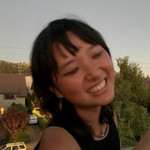 For this project, I will write a novella about a girl named Hae-won inheriting the journals of her grandmother Yeong-ja who was forced to be a comfort woman when she was eighteen years old. “Comfort woman” is the euphemistic term used to describe women from Korea, the Philippines, China, and other Asian countries forced into sexual slavery by the Japanese Army during World War II. Today, the average age of the survivors is 95 and in South Korea only nine survivors remain. The reader, alongside Hae-won, will gain insight into Yeong-ja's life before the war, in Manchuria as a comfort woman, and back in South Korea where she seeks refuge at a Buddhist temple. I will start by traveling to Seoul, talking with my family, visiting the comfort women museum, and participating in a Buddhist templestay. Combining journal entries, dreamscapes, photographs, and narratives that span eighty years, I aim to write a story that reflects the nonlinearity of history, memory, and myth. How do different generations navigate trauma and can writing be a vessel for healing? How can we process suffering, individually and collectively? How do stories reflect and shape reality? These questions are the central pillars for my story.
For this project, I will write a novella about a girl named Hae-won inheriting the journals of her grandmother Yeong-ja who was forced to be a comfort woman when she was eighteen years old. “Comfort woman” is the euphemistic term used to describe women from Korea, the Philippines, China, and other Asian countries forced into sexual slavery by the Japanese Army during World War II. Today, the average age of the survivors is 95 and in South Korea only nine survivors remain. The reader, alongside Hae-won, will gain insight into Yeong-ja's life before the war, in Manchuria as a comfort woman, and back in South Korea where she seeks refuge at a Buddhist temple. I will start by traveling to Seoul, talking with my family, visiting the comfort women museum, and participating in a Buddhist templestay. Combining journal entries, dreamscapes, photographs, and narratives that span eighty years, I aim to write a story that reflects the nonlinearity of history, memory, and myth. How do different generations navigate trauma and can writing be a vessel for healing? How can we process suffering, individually and collectively? How do stories reflect and shape reality? These questions are the central pillars for my story.
Asher Nee '27
Old Songs, New World: An Exploration of the Traditional Music Genres of Rembetiko and Paradosiako in the Modern Greek Context
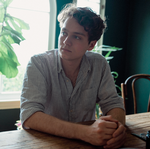 After high school I moved in with my aunt and uncle in Athens, Greece where I quickly fell in love with the soulful traditional music of my mother's ancestral homeland. The more I talked and played with the custodians of the country’s traditional songs, the more I grew to appreciate their salience in an era marked by rapid change. This project will explore the push and pull of tradition and modernity as it is navigated in modern Greece through the performance of folk music. By interviewing musicians and audience members, I'll examine the ways in which the meaning that these songs hold has changed despite strict adherence to traditional forms. The project will have a dual focus on the modern performance of rembetiko, a genre of urban folk music developed by marginalized workers and refugees at the turn of the century, and paradosiako, the traditional music of the islands and villages developed under Ottoman rule. My writing will explore how the conservatism inherent in rejecting modern influence, and the radical past of these songs is reconciled, shedding light on what it means to hold onto the past in a changing world.
After high school I moved in with my aunt and uncle in Athens, Greece where I quickly fell in love with the soulful traditional music of my mother's ancestral homeland. The more I talked and played with the custodians of the country’s traditional songs, the more I grew to appreciate their salience in an era marked by rapid change. This project will explore the push and pull of tradition and modernity as it is navigated in modern Greece through the performance of folk music. By interviewing musicians and audience members, I'll examine the ways in which the meaning that these songs hold has changed despite strict adherence to traditional forms. The project will have a dual focus on the modern performance of rembetiko, a genre of urban folk music developed by marginalized workers and refugees at the turn of the century, and paradosiako, the traditional music of the islands and villages developed under Ottoman rule. My writing will explore how the conservatism inherent in rejecting modern influence, and the radical past of these songs is reconciled, shedding light on what it means to hold onto the past in a changing world.
Ava Burge '25
The Nova Journal: A Digital and Physical Music Magazine
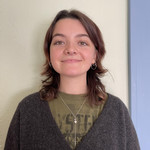 The Nova Journal is an online and IRL music experience that incorporates listening, reading, and learning about up-and-coming music and music history. Music is forever evolving, and the Nova Journal both builds upon the end of an era (RIP Pitchfork) and the beginning of a new era—my era. The Nova Journal hooks the latest Portland bands and also reaches out to the underground New York scene; it is the musician you’ve discovered on social media finally getting a voice beyond their account, and it is the music giants we all grew up listening to. The Nova Journal started when I used to dance in my living room as the superstar, Nova. It is the songs my dad and I sang on our drives to school, and the performers I emulated in my high school band. My aim with The Nova Journal is to create a platform for new music criticism, think pieces on where music is headed, first-person memoir experiences, and more. I have spent the last three years at Reed taking classes in poetry, composition, and anthropology, now I want to hone my craft, combine my passions, and create something that the world—my world—currently craves.
The Nova Journal is an online and IRL music experience that incorporates listening, reading, and learning about up-and-coming music and music history. Music is forever evolving, and the Nova Journal both builds upon the end of an era (RIP Pitchfork) and the beginning of a new era—my era. The Nova Journal hooks the latest Portland bands and also reaches out to the underground New York scene; it is the musician you’ve discovered on social media finally getting a voice beyond their account, and it is the music giants we all grew up listening to. The Nova Journal started when I used to dance in my living room as the superstar, Nova. It is the songs my dad and I sang on our drives to school, and the performers I emulated in my high school band. My aim with The Nova Journal is to create a platform for new music criticism, think pieces on where music is headed, first-person memoir experiences, and more. I have spent the last three years at Reed taking classes in poetry, composition, and anthropology, now I want to hone my craft, combine my passions, and create something that the world—my world—currently craves.
Henry Kallerud ‘26
Don't Move Here: A Photo Documentary about Population Growth
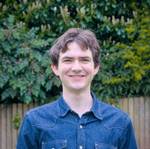 My project is a photo documentary about population growth in the city of Bend, Oregon. Bend had the tenth highest population increase by percentage among U.S. cities between 2010 and 2020 (US Census Bureau). I experienced the city’s growth firsthand after moving to Bend in 2020. The town’s intense and rapid development made population growth feel like the crux of everyone’s experience there. Residents constructed their identity around how long they had lived in Bend, news media frequently covered stories on growth (and this coverage was heavily commented on in social media), and casual conversation often revolved around the cultural changes produced by this growth. In response, I will document this growth through photographs of Bend’s environment and residents. My project will attend to specific and observable markers of change in Bend in order to thoughtfully explore the causes and effects of population growth and attitudes towards that growth. The project will culminate in an exhibition of physical prints at Reed College. I hope to invite the consideration of particular, nuanced, and lived aspects of Bend’s population growth.
My project is a photo documentary about population growth in the city of Bend, Oregon. Bend had the tenth highest population increase by percentage among U.S. cities between 2010 and 2020 (US Census Bureau). I experienced the city’s growth firsthand after moving to Bend in 2020. The town’s intense and rapid development made population growth feel like the crux of everyone’s experience there. Residents constructed their identity around how long they had lived in Bend, news media frequently covered stories on growth (and this coverage was heavily commented on in social media), and casual conversation often revolved around the cultural changes produced by this growth. In response, I will document this growth through photographs of Bend’s environment and residents. My project will attend to specific and observable markers of change in Bend in order to thoughtfully explore the causes and effects of population growth and attitudes towards that growth. The project will culminate in an exhibition of physical prints at Reed College. I hope to invite the consideration of particular, nuanced, and lived aspects of Bend’s population growth.
Laura Johnson '25
Homecoming: Tracing Ancestral Trails of the Great and Reverse Migration
 The Great Migration serves as a pivotal chapter in the historical narrative of the Black experience in America, spanning generations and shedding light on the enduring struggles faced by African Americans in the Deep South. This narrative is complemented by a lesser-known but equally significant phenomenon—the reverse migration, where Black Americans returned to the South. In my project, I will trace my family's footsteps across the Southern landscape, from Texas to Kentucky, and onwards to Indiana. Through oral history and archival research, I aim to weave together a tapestry of my family's journey during both the Great Migration and the subsequent reverse migration. I seek to bring to light the stories of my ancestors, examining their migration patterns within the broader context of this transformative era. Each city I visit will be a focal point for utilizing both oral and written history to provide context to my ancestors' lives, connecting this context to existing historical narratives about African American life from the late 19th to late 20th century.
The Great Migration serves as a pivotal chapter in the historical narrative of the Black experience in America, spanning generations and shedding light on the enduring struggles faced by African Americans in the Deep South. This narrative is complemented by a lesser-known but equally significant phenomenon—the reverse migration, where Black Americans returned to the South. In my project, I will trace my family's footsteps across the Southern landscape, from Texas to Kentucky, and onwards to Indiana. Through oral history and archival research, I aim to weave together a tapestry of my family's journey during both the Great Migration and the subsequent reverse migration. I seek to bring to light the stories of my ancestors, examining their migration patterns within the broader context of this transformative era. Each city I visit will be a focal point for utilizing both oral and written history to provide context to my ancestors' lives, connecting this context to existing historical narratives about African American life from the late 19th to late 20th century.
Sophie Tachibana Miller '25
Seeing the Unheard: Critique and Collaborative Revision of Public Art with the Unhoused of Portland
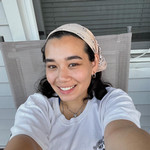 Through conversation, collaborative creation, and prideful reclamation of public space, in this project I aim to broaden accessibility to arts and challenge the forces that attempt to hide the unhoused. Incorrectly, I assumed that public art is created “for the people” and is fully accessible to all. Sculpture magazine writes “Arguably, there is no public or community in general . . . for public art specifically, but there certainly is an immediate audience—those who pass it sporadically or on a daily basis.” This definition implies that unhoused people, who in contrast to housed people spend a large portion of their time in the urban outdoors, are the immediate audience for public art. Yet despite this label, they have little to no influence on their neighborhood adornment. Due to this direct contradiction, I am prompted to address this discrepancy by mimicking the practices of elite art critiques: monetarily compensate participants for the valuable labor of sharing their opinion on surrounding public art. Lastly, in pursuit of reclaiming space and refusing to be hidden, I will collaborate with participants to create an exhibition based on their own visions for public beautification and visibility.
Through conversation, collaborative creation, and prideful reclamation of public space, in this project I aim to broaden accessibility to arts and challenge the forces that attempt to hide the unhoused. Incorrectly, I assumed that public art is created “for the people” and is fully accessible to all. Sculpture magazine writes “Arguably, there is no public or community in general . . . for public art specifically, but there certainly is an immediate audience—those who pass it sporadically or on a daily basis.” This definition implies that unhoused people, who in contrast to housed people spend a large portion of their time in the urban outdoors, are the immediate audience for public art. Yet despite this label, they have little to no influence on their neighborhood adornment. Due to this direct contradiction, I am prompted to address this discrepancy by mimicking the practices of elite art critiques: monetarily compensate participants for the valuable labor of sharing their opinion on surrounding public art. Lastly, in pursuit of reclaiming space and refusing to be hidden, I will collaborate with participants to create an exhibition based on their own visions for public beautification and visibility.
Zihang Peng ‘25
Timeless Narratives: Capturing the Essence of Aging
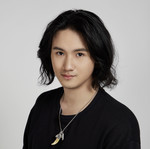 Have you ever thought about what “aging” is? What comes to your mind when the word “aging” is mentioned? The aging process touches every aspect of our lives, yet it remains one of the most misunderstood and often overlooked chapters in the story of societal evolution. Intergenerational dynamics can sometimes become ensnared in misconceptions, creating barriers to meaningful communication. Despite these challenges, resilience remains a guiding force that holds our society together. This summer, I embark on a profound journey to capture the narratives of older adults in Portland. Through the evocative mediums of documentary film and portrait photography, I aim to amplify the voices of the community’s experiences, stories, and emotions of older adults. My project seeks to nurture empathy and foster a deeper understanding between generations. By bridging intergenerational divides, my project aspires to build a stronger, more cohesive community founded on mutual respect and appreciation. This fall, I plan to hold an exhibition to extend the project’s impact beyond academia and encourage the broader community to engage in meaningful dialogue and reflection. Through this project, I hope to illuminate the beauty and wisdom that come with aging and inspire a richer appreciation for the journey of life.
Have you ever thought about what “aging” is? What comes to your mind when the word “aging” is mentioned? The aging process touches every aspect of our lives, yet it remains one of the most misunderstood and often overlooked chapters in the story of societal evolution. Intergenerational dynamics can sometimes become ensnared in misconceptions, creating barriers to meaningful communication. Despite these challenges, resilience remains a guiding force that holds our society together. This summer, I embark on a profound journey to capture the narratives of older adults in Portland. Through the evocative mediums of documentary film and portrait photography, I aim to amplify the voices of the community’s experiences, stories, and emotions of older adults. My project seeks to nurture empathy and foster a deeper understanding between generations. By bridging intergenerational divides, my project aspires to build a stronger, more cohesive community founded on mutual respect and appreciation. This fall, I plan to hold an exhibition to extend the project’s impact beyond academia and encourage the broader community to engage in meaningful dialogue and reflection. Through this project, I hope to illuminate the beauty and wisdom that come with aging and inspire a richer appreciation for the journey of life.